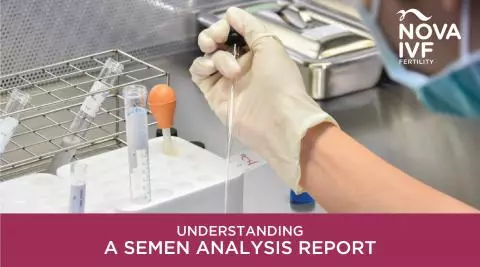What is Chlamydia?
Chlamydia is a common condition that is found in both sexually active men and women. This is a sexually transmitted disease which occurs due to vaginal, oral, and anal sex. It is caused due to the bacteria Chlamydia trachomatis that spread only through unprotected sex. Chlamydia is the most common bacterial sexually transmitted infection (STI), with about 1.5 million reported cases annually in the U.S. The actual number is likely higher due to many asymptomatic cases going unreported. It spreads through vaginal fluid and semen during sexual contact, including vaginal, anal, and oral sex, as well as through shared sex toys.
In men, Chlamydia bacteria can cause infection in the penis, anus, or eyes. This sexually transmitted disease can spread easily due to less prominent symptoms during the initial stages. This condition stays asymptomatic in around 70 percent of men. In Women, chlamydia is transmitted through any type of unprotected sex. Chlamydia can affect a woman's cervix, uterus, fallopian tubes, and ovaries. It can lead to serious health complications if not treated properly on time. It is vital to note that Chlamydia infections are treatable and curable.
Causes of Chlamydia in Men and Women
Chlamydia is caused through the bacteria Chlamydia trachomatis that is spread through unprotected vaginal, anal, or oral sex. This infection can spread to other body parts too. Chlamydia can only spread through body fluids and not through touching and sharing of clothes or other belongings. However, it does not need actual penetration, even with mere contact of the genital fluid of the infected person, this condition can spread. This condition is most common in teenagers and young adults.
In male Chlamydia, the sexually transmitted disease, the Chlamydia bacteria cause infection in the penis, anus, or eyes. People under the age of 25, men who have multiple sexual partners, and who do not use condoms are more likely to have this infection.
Unlike other sexually transmitted infection, Chlamydia will not have any symptoms in the initial stages. It may take around 1 to 3 weeks before the actual symptoms start to appear. Chlamydia in me can cause white, yellowish, milky, clear, or cloudy discharge from the penis, itchiness, or redness on the head of the penis, inflammation in the rectum or eyes, etc.
Chlamydia should be treated as early as possible to avoid severe health complications. If left untreated, it can cause a condition in men called nongonococcal urethritis (NGU). In this condition, it can cause inflammation in the prostate glands, urethra, epididymis or rectum, infertility and narrowing of the urethra or stricture. So, when one notices certain signs and symptoms of Chlamydia, he should immediately approach a doctor for proper treatment. Let us discuss the Chlamydia symptoms men experience:
Symptoms of Chlamydia
Symptoms differ based on gender and the infected body part. Common symptoms include unusual discharge, pain during urination, and discomfort in the genital area.
In Males
In around 70 percent of the cases, there will be no signs of this condition seen initially in men. The symptoms will only appear after 1 to 3 weeks of exposure. When it appears, one must watch out for the following symptoms:
The most common signs of Chlamydia in men are:
- Clear, yellowish, beige, milky, or cloudy discharge from the tip of the penis
- Pain while urinating
- Urge to urinate more than usual
- Pain in the testicles; Swollen sometimes too
- Itching, pain, swelling around the anus (in the case for Chlamydia in the anus)
- Discharge, redness, and itching in the eyes (in the case for Chlamydia in the eyes)
- Itching or burning around the head of the penis
- Pain in the rectum; discharge or bleeding can also be seen
- Inflammation in the eyes
- Sore throat.
In Females
The Chlamydia symptoms in women may vary from person to person. In most of the cases, it goes asymptomatic for a long time. In such cases, infected people are unaware of their condition and thus end up passing this on to their partner/s. Some women with Chlamydia can develop an infection in the uterine cervix known as cervicitis. Vaginal discharge and abdominal pain are the symptoms of cervicitis. Some may develop pain while urinating or frequent urge to urinate which may seem to be like the symptoms of a urinary tract infection, thus getting misdiagnosed.
In most cases, Chlamydia in women shows no symptoms for a long time. 70% of women are asymptomatic; however, some women experience the following signs and symptoms:
- Vaginal discharge
- Bleeding or spotting after sex
- Abdominal pain
- Urge to pee more than usual
- If left untreated, then it can lead to Pelvic inflammatory disease
Diagnosis of Chlamydia
The diagnostic methods used for male and female to determine chlamydia are different. Testing involves a nucleic acid amplification test (NAAT) using a fluid sample from a swab or urine. Regular screening is vital, especially for high-risk groups, to prevent severe complications.
The male chlamydia can be diagnosed:
- By placing a cotton swab at the tip of the penis and sending this swab to the laboratory for analysing the sample of fluid collected.
- By conducting a urine test for the presence of bacteria.
In the following ways female Chlamydia can be diagnosed:
- Non-invasive screening tests like urine test and vaginal swabs.
- Pap test
Treatment for Chlamydia
Chlamydia is caused by the bacteria Chlamydia trachomatis. So, for treating this condition, doctors will prescribe antibiotics. During Chlamydia treatment, men undergo a 7-to-14-day course of antibiotics. The antibiotics generally used are azithromycin and doxycycline. A single dose of azithromycin or a double dose of doxycycline for 7 to 14 days should clear the infection in most cases.
During antibiotics, the patient will be asked to abstain from any kind of sexual activity in order to prevent spreading of the infection to the other partners. It is important to finish the course and take all the medicines prescribed because the Chlamydia infection can reoccur or repeat, which is considered as common in this condition.
Doctors may ask the patients to visit again, post the antibiotic course for a retest after a gap of three months. Regular screening for sexually transmitted diseases in people below the age of 25 years who have unprotected sex and change their partners frequently is a great way to keep such conditions at bay. When one is treated for Chlamydia, it is important that his partner also gets tested or treated, irrespective of the fact whether he has passed the infection or not. It is important to note that with the proper course of antibiotics, Chlamydia can be cured.
Complications associated with Chlamydia
In Male
In men, chlamydia can spread to the testicles and epididymis (tubes that carry sperm from the testicles), causing them to become painful and swollen. This is known as epididymitis or epididymis-orchitis. If it's not treated, there's a possibility it could affect your fertility. Chlamydia is the most common cause of sexually acquired reactive arthritis (SARA). This is where your joints, eyes, or urethra (the tube that passes urine out of the body) become inflamed, usually within the first few weeks after having chlamydia. It can affect women who have had chlamydia but is more common in men. There's currently no cure for SARA, but most people get better in a few months. In the meantime, treatment with NSAIDS such as ibuprofen can help relieve the symptoms
If any of these symptoms occur and if you get diagnosed with Chlamydia, then it is better to refrain from sex and inform all the sex partners to get a test for the same. With the proper course of treatment getting rid of Chlamydia is possible. To prevent Chlamydia, one should practice safe sex, avoid multiple sex partners, and take periodic screening for STDs.
It is important to remember that if any symptoms are noticed, you need to meet a service provider for treatment to prevent complication. Since chlamydia infection is most commonly asymptomatic, it is necessary that you are screened if you're sexually active and under 25 years old, you should get tested for chlamydia every year or every time you have a new partner.
In Female
If left untreated, then Chlamydia in women can cause pelvic inflammatory diseases which in turn causes destruction of the fallopian tubes causing infertility, chronic pelvic pain, and an increased risk of ectopic pregnancy (pregnancy implants outside the womb - most commonly in the tube). Fever, pelvic pain, abdominal pain, pain during intercourse, etc. are some of the symptoms of the pelvic inflammatory disease.
Pregnant women with Chlamydia are at the risk of premature births and low birth weight babies. This infection can be passed on to the newborns and can cause eye damage or conjunctivitis or pneumonia. This complication can happen silently without even being aware of the infections, so screening is of utmost importance. This can be prevented with regular screening and screening overtime a partner is changed.
Chlamydia is a sexually transmitted disease which is found both in men and women. Female Chlamydia is usually more common than male Chlamydia. Chlamydia in women causes inflammation in the reproductive tract that includes cervix, urethra, and Fallopian tube.
With proper treatment, this condition can be cured, though there are chances of reoccurring or repetition of Chlamydia infection. If left untreated, it can cause the destruction of the Fallopian tubes and even lead to infertility in women.
Prevention
Anyone who is sexually active can catch chlamydia. You're most at risk if you have a new sexual partner or don't use a barrier method of contraception, such as a condom, when having sex. To prevent Chlamydia, one must use protection such as condoms and limit sex partners. Also, regular screenings for Chlamydia and other sexually transmitted diseases should be performed to prevent and provide proper and timely treatment.
You can help to prevent the spread of chlamydia by:
- using a condom every time you have vaginal or anal sex
- using a condom to cover the penis during oral sex
- using dental dams during oral sex
- limiting the number of partners
- getting regularly screened for sexually transmitted diseases - Since chlamydia infection is most commonly asymptomatic, it is necessary that you are screened if you're sexually active and under 25 years old, you should get tested for chlamydia every year or every time you have a new partner.
- using a dam (a piece of thin, soft plastic or latex) to cover the female genitals during oral sex
- not sharing sex toys
If you do share sex toys, wash them, or cover them with a new condom between each person who uses them.
Regular screening for chlamydia in people below 25 years who participate in unprotected sex and change their partners frequently is an effective way to keep this infection at bay. When one person is treated for Chlamydia, it is important that their partner gets tested or treated as well, regardless of whether they have been infected or not.
Addressing Stigma and Encouraging Open Discussion
It is important to talk about STIs as a common health issue, similar to discussing other infections like the flu using non-judgmental terms and medically accurate language. People must be encouraged to learn about STIs, their prevention, and treatment options.
In Conclusion
Chlamydia is a common STI, which if left untreated, can lead to serious health complications. However, Chlamydia infections are treatable and curable.
Its early detection through screening along with responsible sexual practices is essential for the management and prevention its spread. It is crucial that both men and women are aware of the symptoms. In case that any symptoms are seen, one should promptly seek medical aid and adhere to the treatment protocol to prevent serious health complications.
Regular screening for chlamydia in people who participate in unprotected sex, are below the age of 25 years, and/or change their partners frequently is way to ensure that this infection remains bay. With appropriate guidance and medical interventions, this condition can be cured, allowing you to regain your health and avoid complications arising due to Chlamydia.
 Infertility Counselling
Infertility Counselling Female Infertility Treatment
Female Infertility Treatment Andrology Treatment
Andrology Treatment Fertility Enhancing Surgeries - Female
Fertility Enhancing Surgeries - Female Fertility Enhancing Surgeries - Male
Fertility Enhancing Surgeries - Male Endoscopy Treatment
Endoscopy Treatment IUI Treatment
IUI Treatment IVF Treatment
IVF Treatment ICSI Treatment
ICSI Treatment Advanced IVF Solutions
Advanced IVF Solutions Embryology
Embryology Vitrification Egg, Embryo, Sperm Freezing
Vitrification Egg, Embryo, Sperm Freezing Preimplantation Genetic Testing (PGT)
Preimplantation Genetic Testing (PGT) Donation Program Embryo / Egg / Sperm
Donation Program Embryo / Egg / Sperm Self-cycleTM IVF
Self-cycleTM IVF

 Self-cycleTM IVF
Self-cycleTM IVF











